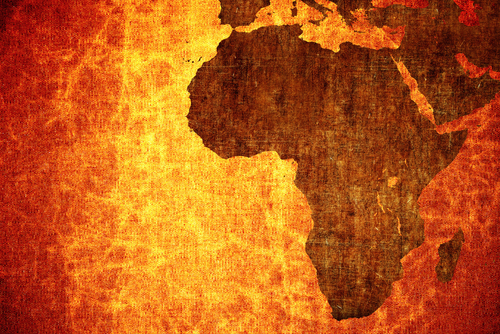
November 28, 2015

Source: Shutterstock
I think I may safely claim to be one of the few people alive to have flown in a Malian air force DC-3 from Bamako to Timbuktu in the company of a winner of the Nobel Prize in Literature.
The Nobel Laureate in question was Nadine Gordimer, the South African novelist and short-story writer. We were in Mali for a UNDP conference (I paid my own ticket) on improving the image of Africa in the world’s press, which was presumably thought to be an easier task than improving Africa itself. In any case, I thought that the latter should and could only be left to the Africans themselves.
Nadine Gordimer exactly corresponded to the characterization of her by the South African satirist Pieter-Dirk Uys, as “Comrade Madam”: the lifetime habit of command combined with a theoretical and dogmatic egalitarianism. (In another of Uys” brilliant sketches, he depicts a rich Johannesburg housewife laboriously making herself up”preparatory to going to bed.)
Nadine Gordimer had a voice whose timbre would have penetrated the best artillery-proof armor plating. On one occasion at the conference she condescendingly addressed a Ghanaian lady as “my sister Susan.” “Actually, my name’s Gloria,” said her sister Susan, but the great writer ignored this manifestation of pedantry and continued with what she was saying.
It was my second visit to Mali. The first time, a few years before, I had been crossing Africa by public transport”to see the continent from the bottom up, as it were. This was about thirty years ago, and I doubt it would be safe to make the journey now: There are too many civil wars and guerrilla insurrections on the route I took. On the other hand, Africa is much more democratic nowadays than it was then.
Mali had the distinction”if distinction it was”of being the most corrupt of the many countries through which I passed. It took three days to go a hundred yards on the bus on which I was traveling because of the exactions of the various branches of Malian officialdom on the passengers (exactions from which I, as a white man, was exempt). When I lost my temper and complained, a Malian soldier said to me mildly, “But, monsieur, we have not been paid for three months,” and I felt ashamed.
Considering that I had passed through Zaire, as it then was, and Nigeria, the fact that Mali appeared the most corrupt country of all was quite impressive; but of course my impression may have been wrong, for it was not based on scientific sampling (if such a thing exists, which I am inclined to doubt).
Another impression that may have been wrong was that I felt no antagonism toward me in the Muslim parts of the continent through which I traveled”Zanzibar, Northern Cameroon, Northern Nigeria, Niger, and Mali itself. I had no inkling of the trouble to come. It is true that there had been a riot recently in the sultanate capital of Sokoto, in Nigeria, between the Christians and Muslims on the question of drinking, the bars where it was permitted being all in a certain area. But this riot was”I was about to say”small beer by comparison with what was to come.
When I arrived in Maiduguri, in Northern Nigeria, the town was virtually empty. Everyone was away at the public executions, but this was under the auspices of Nigerian law, not of sharia. When in Kaduna market I bought some splendid Hausa robes; the merchants no doubt thought I was ridiculous, but they said that they were pleased because it showed them that I liked the local people”which I did. I certainly felt safe in the markets of Northern Nigeria because thieves there were chased and severely beaten when caught. There were not many thieves. It never occurred to me that I or my civilization was an object of hatred, for I never encountered any manifestation of such an emotion.
Was I merely being obtuse? Was everybody concealing his feelings from me? A movement like Boko Haram cannot materialize out of nothing, and perhaps my observations were too fleeting and superficial to detect any deeper currents under the calm waters of the surface. But if you had told me of what would happen less than thirty years later, I wouldn”t have believed you.